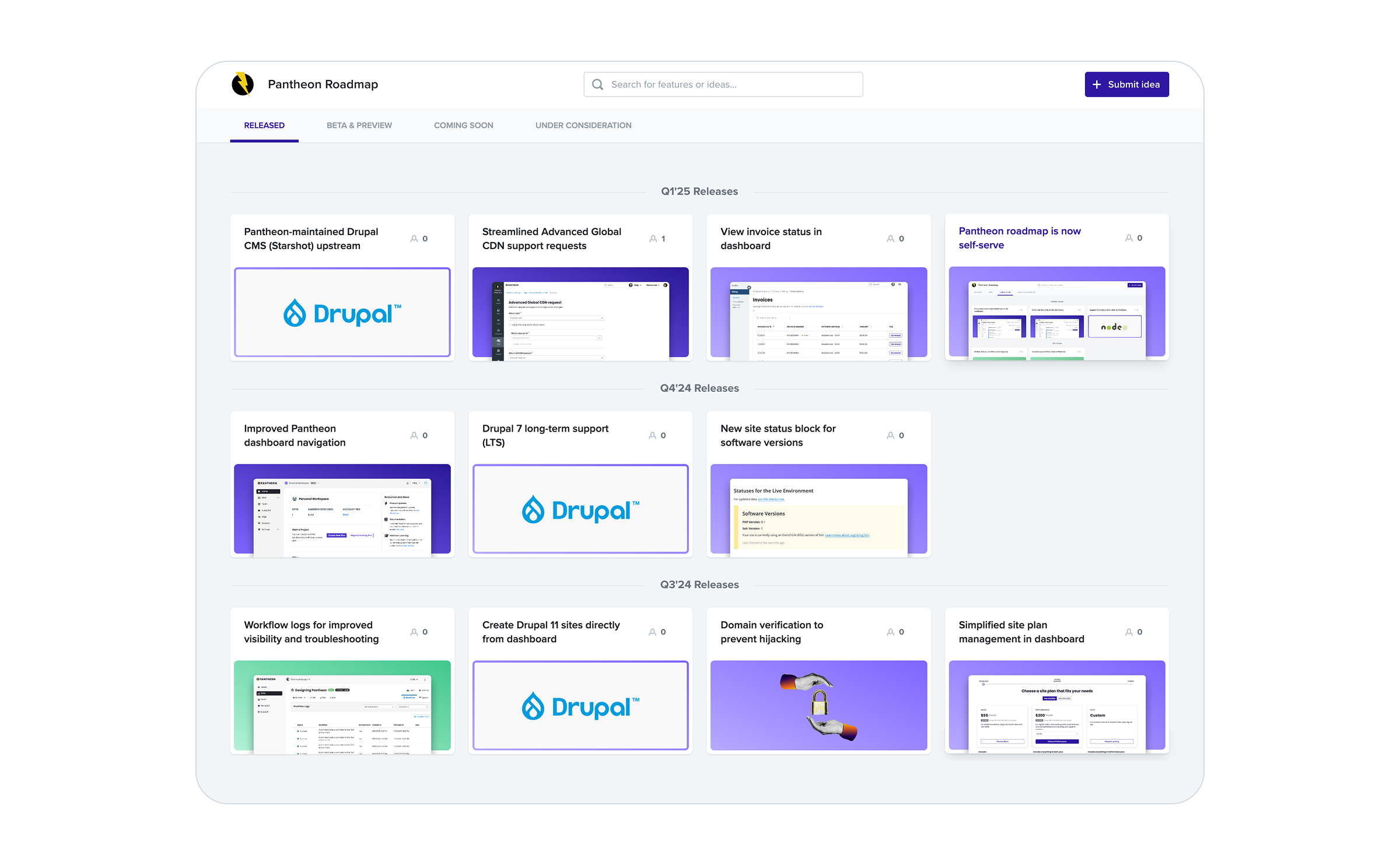Marketers: Here’s How to Talk to IT About Your Website Needs
Image

Do you feel marketers and the IT department don’t always speak the same language? When you say you want a site that’s easy to manage, fast, and secure, they start talking about agile development, global points of presence, and intrusion prevention systems. It can be challenging to work together without a translator.
Image

Knowing the right technical lingo can do wonders to move the conversation along. To help you get started, here’s a brief overview of top website needs along with associated vocab lists. Don’t worry; spelling won’t be graded.
Need 1: Easily Updatable Marketing Website and Design
The website is no longer just a billboard on the roadside of customer experience; it’s a critical part of the customer journey. Recent data indicates that 88% of consumers do online research before making a purchase either online or at the store. In the B2B space, website conversions are an increasingly important way for companies to connect with prospects.
As such, marketers need to update their pages frequently. Being able to provide fresh information on a blog or a new landing page is money in the bank. Plus, it adds additional indexed web pages, improving SEO and making it easier for people to find your company online. So why is it so hard to get a page published?
Does anyone really think the IT group enjoys micromanaging your marketing site? It’s a safe bet that most IT groups would happily turn over the keys to day-to-day website updates if only they could be guaranteed that marketers wouldn’t crash the site.
It’s not that they just don’t like the idea of marketers playing around in their code. In a traditional web development model, cleaning up after a crash can be time-consuming and painful. The good news? With the right development environment and revision control, it doesn’t have to be.
Vocab List: Development and Version Control
Development workflow - With a Dev/Test/Live workflow, development and page updates are not made on the live site, but in a test environment identical to the live site. Developers can frequently pull the database from the live site to ensure they are working with the most current content. Because of the Dev/Test/Live process, IT can be confident that everything is working perfectly before it goes live.
Version control - With version control, IT has the confidence of knowing that if anything goes wrong, the site can easily be restored to a functional earlier version.
Multidev environment - In a multidev environment, developers can work on different branched versions of the code, then combine changes and test before pushing live. That means multiple features can be developed at the same time, instead of having to wait in a queue.
Multiple administrators - This is where marketing comes in. Ideally, the IT group could set up multiple administrators with different rights. This means that IT can give marketers an inch, knowing they can’t take a mile.
The bottom line: With the right admin and development tools in place, IT can feel comfortable giving marketers the keys to drive their website marketing efforts into the future. Since site changes are reviewed on a test site before taking the changes live, there’s less chance of errors. Even if marketers somehow take a wrong turn and drive the live site right into a 404 error, the IT department has some insurance that it can be easily fixed.
Need 2: Fast and Responsive Website
Right now, you might only be getting a couple thousand page views per month. But with your marketing initiatives, it’s only a matter of time before you go viral, right? The point is that you need your site to be fast and responsive during traffic lulls and traffic spikes, both now and in the future. Oh, and it needs to load fast on phones, too.
Before you march into the IT director’s office and tell her that you need a future-proofed, mobile-proofed site, you should know building and maintaining a scalable site can be a huge resource drain. The good news? With scalable hosting, it doesn’t have to be.
Vocab List: Website Speed and Responsiveness
Scalable hosting - The right hosting platform scales to respond to your web traffic needs. For example, with a distributed-container based architecture, web traffic scales horizontally and spreads across countless containerized instances.
Global network - The content delivery network for the hosting platform should be comprehensive.
Real-time caching - For optimal web page performance, there should be duplicate syncing of entire pages, not just static assets.
Speed index - Speed matters. The fastest hosts can be several times faster than the slowest ones.
Pageload times - If pages are slow to load, visitors are quick to leave. Load times for both Drupal and WordPress sites should be well under a half second.
The bottom line: Your hosting platform has much to do with your site’s speed and resiliency. Look for hosting that scales horizontally to support traffic spikes, and offers advanced caching over a global network.
Need 3: Safe and Secure Website
In the era of hackers and the General Data Protection Regulation (GDPR), the stakes for keeping web visitor data secure have never been higher. But did you know that site security—specifically the use of HTTPS— is becoming an increasingly important factor in SEO ranking? It’s not just that people are being told to steer clear of unsecured sites; it’s also that Google search is prioritizing sites with HTTPS. The good news? Your choice of hosting partner can make website security a cinch.
Vocab List: Website Security
Content management system (CMS) updates - To ensure optimal safety, it’s crucial to keep your site on the current version of the WordPress or Drupal CMS.
Login management - Your IT will be interested in using Security Assertion Markup Language for advanced login features like two-factor authentication and single sign-on.
Infrastructure security - On some web hosts, a vulnerability in one site can compromise the entire server. Your site should be free from the risk of cross-contamination.
Intrusion prevention system (IPS) - An IPS provides an extra layer of encryption security for your site.
HTTPS management - Your hosting company should include fully managed HTTPS certificates for all hosting plans.
The bottom line: The right hosting partner can help the IT and marketing groups feel confident that they are providing a secure site that’s good for the company and your customers.
With Pantheon, Website Results Can Be The Common Language
There are different words that marketers and IT use to describe their website needs. Regardless of how you say it, Pantheon can help your company deliver what really matters: a responsive, secure site that provides meaningful results.
If these vocab lists aren’t enough to get your IT group on the same [web] page as marketing, let them know they can create a free account or contact us to learn first-hand how Pantheon can help your site be faster, more responsive, more secure, and easier to update.


